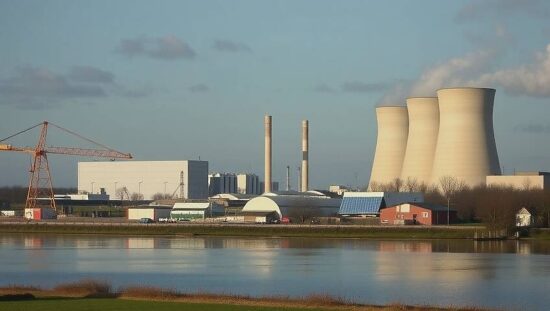North Rhine-Westphalia’s Environment Minister Oliver Krischer, a member of the Green Party, has announced that he will take measures if Belgium decides to build new nuclear reactors and extends the operating life of existing power plants. “If that happens, I as the Environment Minister of North Rhine-Westphalia will use the opportunities to represent the interests of NRW in terms of safety” the politician told Ippen-Media in an interview.
The new Belgian government had announced in early February that it would reverse the country’s nuclear phase-out and focus more on nuclear power. According to Belgian Prime Minister Bart De Wever, the decision was made to strengthen the country’s energy security.
“The region around Aachen has always looked at the old power plants in Belgium with concern” Krischer said. “Everyone was happy when it was announced that more old blocks in Belgium would be shut down this year. But the new Belgian government’s decision to go in reverse is dangerous.”
Although he still has doubts about whether the announced operating life extensions will actually be implemented, Krischer is prepared to strongly represent the interests of NRW in the event of such a decision. “It’s not the first time that an announced operating life extension in Belgium has not come to pass” the politician said. “However, in the event of uncertainty, we will use the agreements and procedures in place, such as the Aarhus Convention and transboundary environmental impact assessments, to make our position heard.”
According to Krischer, it is not the role of the German side to influence the energy policy decisions of its Belgian counterparts. However, when it comes to safety standards, the two countries can and will have a clear conversation.
The Tihange-2 nuclear power plant in Huy, near the border with NRW, had already sparked debates in 2023 due to concerns about its safety. “With the support of the German federal government, we were able to prove that the plant does not meet European safety standards. This likely contributed to the Belgian government’s decision to shut it down” Krischer believes.





